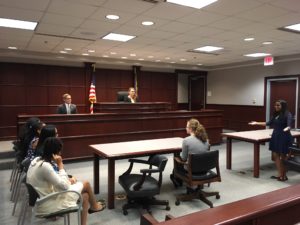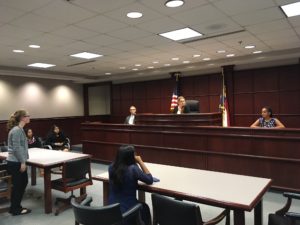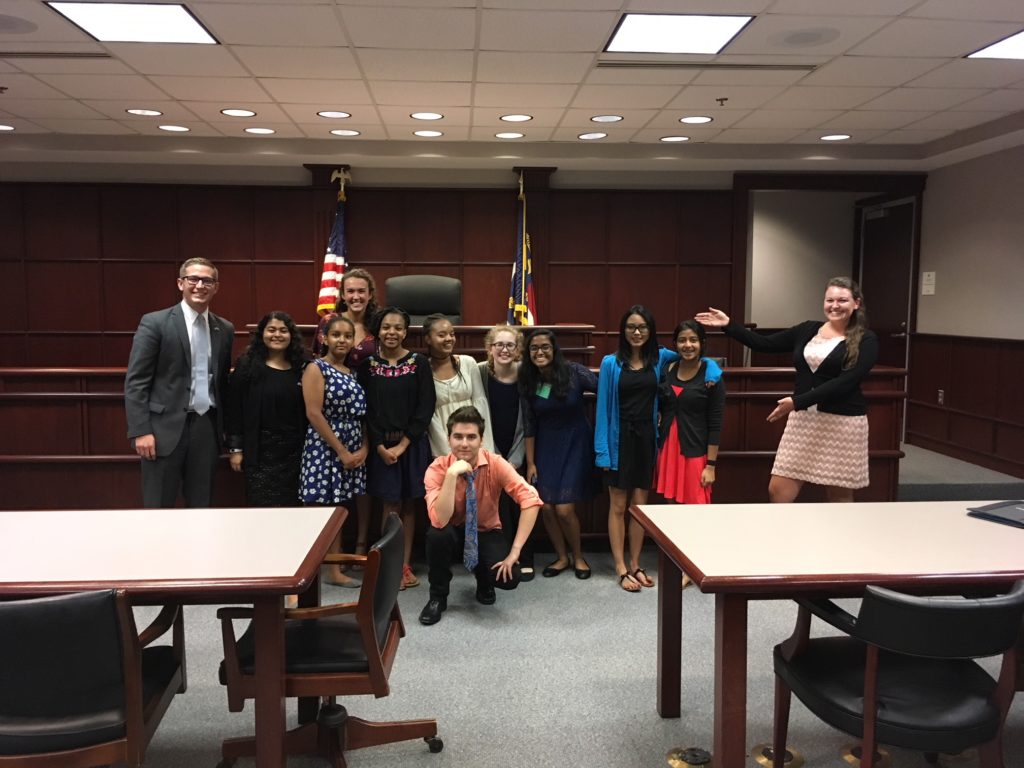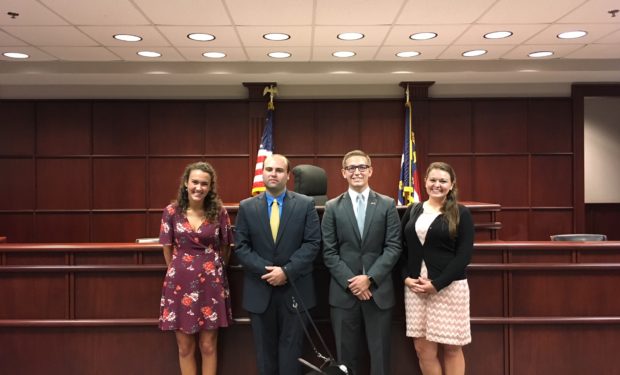Campbell Law participates in Capital Area Teen Court
Senior staff writer Cody Davis reports on Campbell Law's participation at the Capital Area Teen Court at the Wake County Courthouse.
Every first and third Tuesday of the month Campbell Law students volunteer at the Capital Area Teen Court at the Wake County Courthouse. Students volunteer for Teen Court through the Campbell Law Pro Bono Council’s Teen Court Project coordinated by Council member Joonu Coste. Volunteers at the Capital Area Teen Court also include Campbell Law alumni that continue to support Teen Court after leaving law school. Other volunteers usually comprise of area attorneys, professionals, and, of course, the youth volunteers.

A youth attorney delivers opening statements to the jury.
Teen Court programs have been successful across the country as a diversion program for middle school and high school aged youths accused of delinquent behavior. Teen court is a unique type of diversion program that mimics the setting of juvenile court, but utilizes youth in many of the traditional courtroom roles to promote positive peer influence. For example, at the Capital Area Teen Court, the youth defendant is represented by a youth attorney, prosecuted by a youth attorney, and sentenced by a youth jury. Sometimes the role of courtroom bailiff is also served by a youth.
It is important to note that not every role is filled by youth; the judge, jury monitor, and exit interviewer are all adults. The judge is a local attorney or law student, and is one of the volunteer positions that many Campbell Law students serve. The hearings are similar to what one would expect in see in a trial. The attorneys are allowed to give opening and closing statements, present evidence, question witnesses, and make and argue objections. Usually the parent or guardian is present with the defendant and has the opportunity to speak to the court on behalf of their child.

A youth attorney examines a witness.
After hearing the evidence, the youth jury determines a constructive sentence, within a given range, to impose on the defendant. Sentences usually include a requirement that the defendant serve on a subsequent youth jury, complete community service hours or courses on decision making, and complete other tasks, like an apology letter or essay as determined by the judge. Jurors do not determine whether or not a defendant is delinquent because the defendant must admit to the allegations as a condition of participation in the program. Allowing the youth defendant to take responsibility for his actions without establishing any kind of record or without being subject to the formal juvenile justice system are the immediate benefits of the program. Less immediate goals of teen court programs include decreased rates of reoffending, increased respect for the justice system, and many other related outcomes. Research has shown teen courts, like the Capital Area Teen Court, to be quite successful in reaching these goals.
Volunteering for the Capital Area Teen Court is made easier for Campbell Law students thanks to the Teen Court Project. Students can sign up to volunteer through the project and receive training fairly quickly. Training usually includes a lunch hour training hosted at the law school and a shadowing component. Teen Court is an excellent opportunity for Campbell Law students eager to begin making an impact with their education. It is a great opportunity, particularly for those interested in juvenile justice or child welfare, as well as those interested in just being a supportive mentor to those who are our future.

Campbell Law and youth volunteers at the September 19 session of Capitol Area Teen Court.






